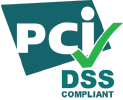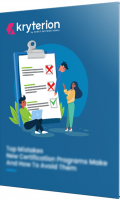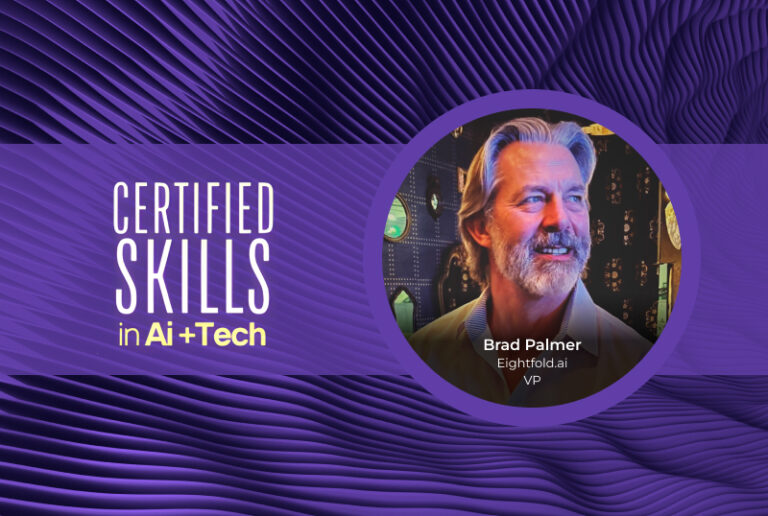Brad Palmer, VP at Eightfold.ai shares his expertise in navigating the changing landscape of talent acquisition and intelligence, spotlighting the shift towards skills-based workforce planning. At the forefront of the ethical AI movement, Eightfold.ai prioritizes the vital role of ethical AI, ensuring fairness and reducing bias in decision-making processes in human capital practices. Brad also examines the impact of implementing these strategies on businesses, emphasizing the importance of connecting talent strategy to overall business objectives and the potential for exponential growth through retaining and nurturing talent.
Skills Based Workforce Planning
What are some of the shifts that you’ve seen in the past?
We’ve had many, many platforms in the past that have done some sort of talent intelligence or talent acquisition with the AI component. I’ve been in the space now for a long time and a lot of my background was on the assessment side of the world, using data to build models, help get the right person in the right role so they can perform better, stay longer, promote from within all of those things. And what I saw a few years ago was there a trend toward the currency of skills and the ability to have skills-based workforce planning and jobs and being able to break down what it takes to effectively perform work.
Building a Talent Marketplace
How do you upskill people? How do you make sure that you understand the trends in the industry and where you need to point going forward?
Those are some things that talent intelligence can do; help you understand your industry, the trends, the skills that your workforce has, the skills that you need, and the gaps to give you a strategy for how to get there. Healthcare is one of those things where you know statistics are maybe one in about every five jobs in the United States are healthcare related in some way. You’ve seen tremendous demand for frontline providers being able to almost grow an ecosystem of talent. You know, build a talent marketplace and give people an opportunity to create a career, go from an hourly frontline role maybe as an aide or somebody in the cafeteria and get them into a nursing program or give them the ability to acquire skills and experience and build a career. Those are some of the things we are now seeing clients do.
Ethical AI and its usage in Human Capital Practices
Tell us a little bit more about ethical AI what that means to 8-fold and the ethics council?
You hear the quote from movies and things, with great power comes great responsibility. There is great power with AI, and you need to be sure that you’re doing things in a way that promotes good and reduces bias. Our ethics council is made up of several people that have made sure there’s fairness in the workforce. For us it is about making sure that the AI does what it is supposed to do, but it really helps to focus on the skills required to do the job, and the potential that somebody has.
We test our AI constantly to make sure there’s no bias, that it is pointing to the right things for the right reasons based on skills. We’ve completed a bias audit by third parties for New York local Law 144. We are really trying to drive leadership and regulation around ethical AI and its usage in human capital practices.
Identifying Talent Ever Changing Industries
So, if you’re an HR leader and you’re now in this position to identify talent, and be ethical in decision making, what does that engagement look like and how does it change the way that they do things every day?
I think the companies that eightfold works with are largely companies that are innovating and transforming and trying to stay ahead in their industry. These are well known organizations that are respected for trying to do the right things. They’re also in industries that are often dramatically changing. For example, energy companies that are going from traditional fossil fuel industries to green renewables energy. The skills that are required to work in a green renewable energy space are dramatically different than the traditional fossil fuel drilling type of skills that they had in the past. I think there is a great awareness that companies need to become skills based, but they don’t always know what that means.
I think sometimes when we start working with a new company, they may not have even understood exactly what they’re wanting to get out of it, but they need know they need to do something different. They know they need to put AI in their talent processes and need guidance on how to do it. One of the things we’re trying to make sure that we are working through with our clients is what outcomes they really want to achieve.
Aligning Talent Strategy with Business Objectives
What are you noticing with your customers once they’ve started to implement this tool in their in their company?
I think it’s important that we help them understand what we can do, what it takes to be ready for this and how we can help them become ready by implementing and using the tool. One of the things that I really want to do is get back to is connecting talent strategy to business strategy for clients. Reducing time to fill is an important metric in talent acquisition. If you’re able to reduce time to fill effectively, but you’re also finding people that have better skills and better potential, ideally, they are probably performing the role better. So now you’ve got a delta in speed to proficiency and productivity that’s also driving bottom line results for the business overall.
So, it’s about the capabilities of people with the skills and potential to perform the job better rather than just the speed of filling a seat. If they don’t retain the talent, and they don’t hire the right people, that’s turnover costs, which is a significant amount of money that companies lose every year. That’s an area that is always under measured. Turnover is one of those things that happens and it’s an accepted cost in business. But I’ve always felt that the true cost of replacing somebody is under measured and more benefit comes from retaining people, growing your own talent, promoting from within. There is a potentially exponential effect on the return of productivity in the company engagement, as well as the other positive factors that drive the culture of your organization.
Kryterion’s Approach to AI-integrated Test Development and Delivery
At Kryterion, we clearly see the opportunities and disruption that AI is bringing to our industry. Our top priority is to provide clients with the best mix of security, innovation, service, and value in our tools for test development and delivery. AI is quickly becoming an integral technology in our products and direction. The path we are on with AI encompasses the immediate benefits it provides while maintaining a sharp awareness of its evolution allowing us to ensure our products continue to meet or exceed the needs of our clients. Please contact us to set up a meeting so we can further discuss how important AI is to our future and our clients.
Want to keep up with insights on AI in the testing industry? Listen to the Kryterion podcast







